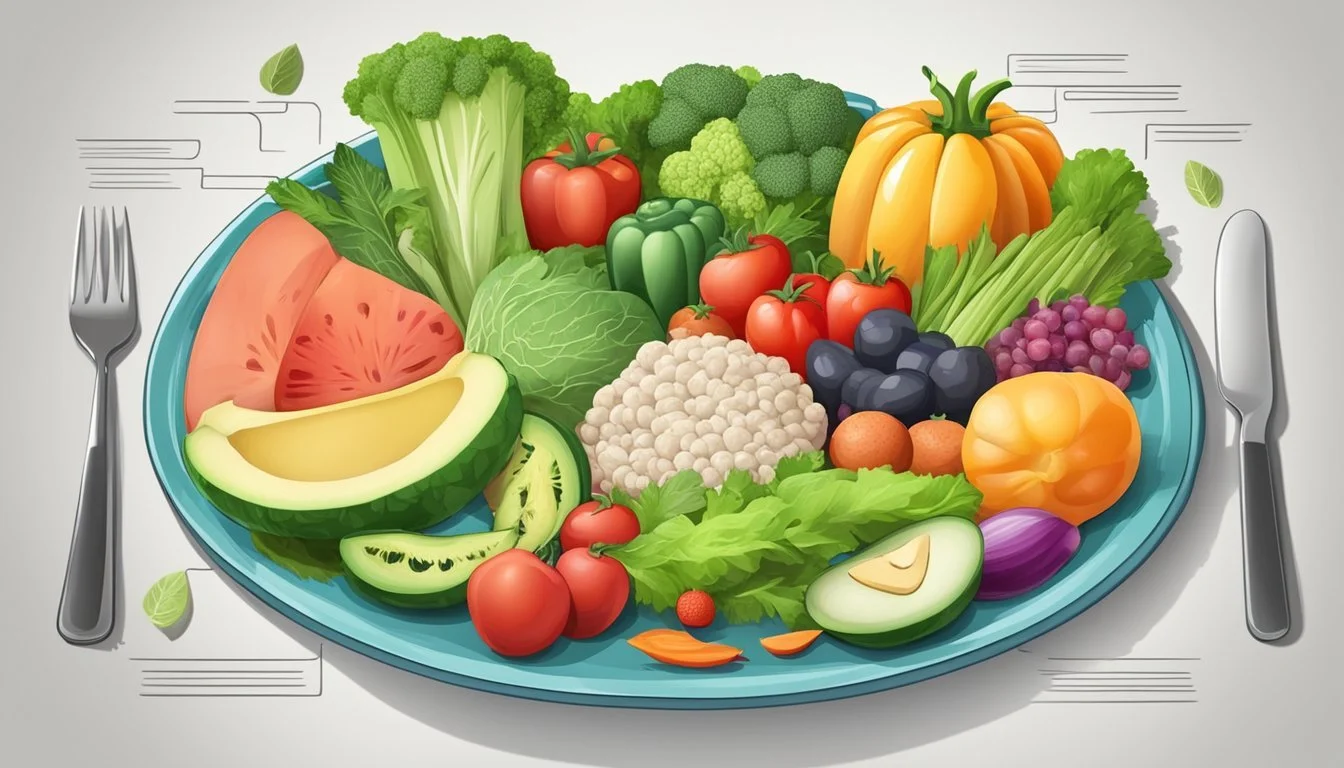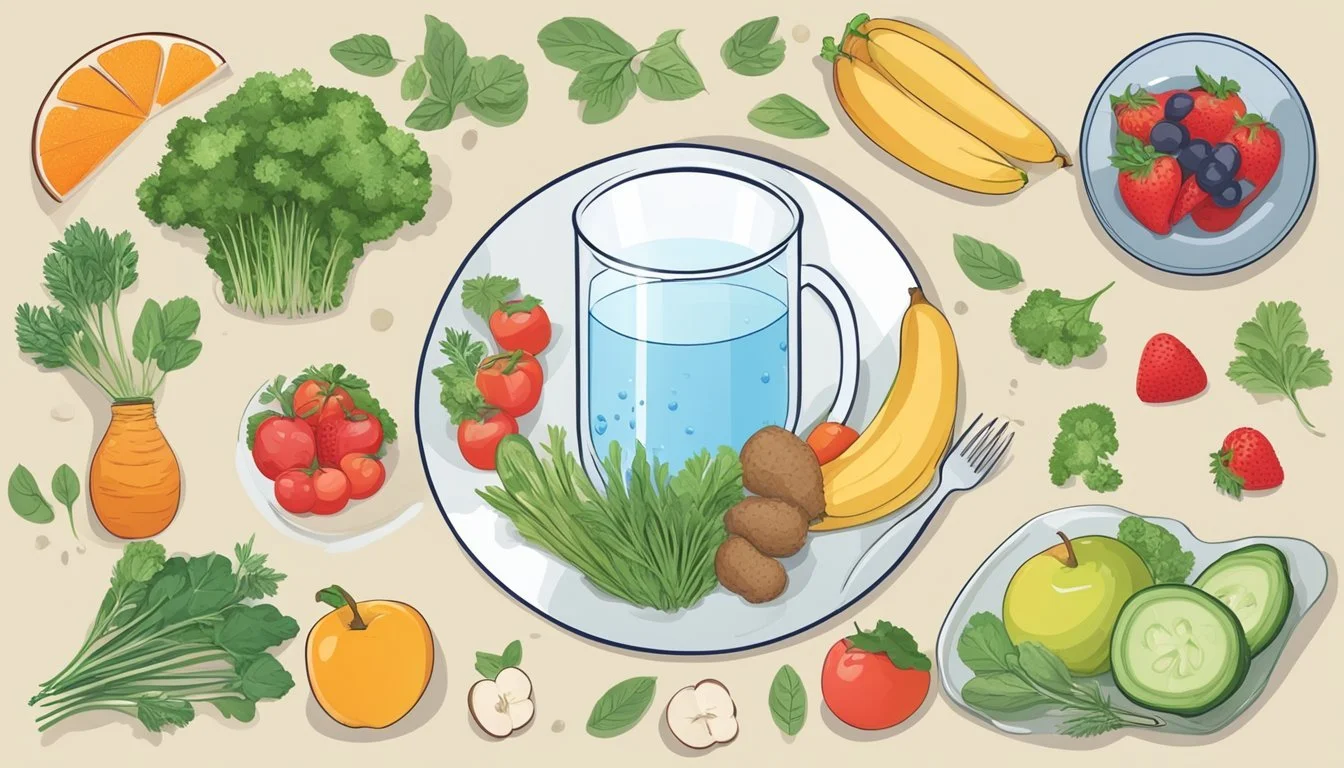The Best Paleo Diet Tips for a Healthy Liver
Essentials for Optimal Function
A healthy liver is fundamental to overall well-being, crucially involved in detoxification, metabolism, and nutrient storage. The Paleo diet, with its focus on whole foods and elimination of processed foods, offers several important benefits for liver health. By emphasizing the consumption of lean proteins, healthy fats, and a rich variety of fruits and vegetables, it naturally aligns with what many healthcare professionals suggest for maintaining a healthy liver. Its exclusion of refined sugars and grains may also help prevent the accumulation of liver fat, a key factor in non-alcoholic fatty liver disease (NAFLD).
Liver health can also be supported by the nutrients found in organ meats, which are a staple in the Paleo diet. Liver, in particular, is a nutrient-dense superfood packed with vitamins and minerals essential for proper liver function. The diet suggests moderate consumption to supply the body with iron, vitamin A, and B vitamins without overindulgence. Furthermore, the Paleo diet's emphasis on fresh produce provides antioxidants and fiber, which may help reduce inflammation related to liver disease.
As the paradigm shifts towards diet patterns that support holistic health, incorporating Paleo diet principles could offer a practical approach to liver health. By reducing the intake of inflammatory and fatty foods and increasing nutrient-dense whole foods, individuals may find an effective dietary strategy not only for liver health but for overall improved health outcomes.
Understanding the Paleo Diet
The Paleo Diet emphasizes consuming whole, unprocessed foods, drawing inspiration from the eating habits of our Paleolithic ancestors. It's heralded for its nutritional approach which supports the liver's health through a natural diet.
Foundations of Paleo Eating
Paleo eating is based on the principle of consuming foods that early humans could obtain by hunting and gathering. This diet primarily includes:
Fruits and Vegetables: They are rich in vitamins, minerals, and fiber.
Lean Meats: Preferably grass-fed as they are higher in omega-3 fatty acids than grain-fed meats.
Fish: Especially those rich in omega-3 fatty acids like salmon and mackerel.
Eggs: Pastured eggs are favored for their higher nutritional content.
Nuts and Seeds: These are excellent sources of healthy fats and proteins.
A strict paleo regimen excludes foods such as dairy, grains, processed foods, and sugars, which became common with the advent of farming and industrialization.
Benefits for Liver Health
Adhering to a paleo diet can be beneficial for liver health due to its emphasis on:
Reducing Sugar and Processed Foods: Lowers the risk of fatty liver disease and inflammation.
High-Quality Proteins: Supports liver function and repair.
Organic Produce: Minimizes exposure to pesticides and toxins that the liver has to process.
By focusing on whole, nutrient-dense foods, the liver is less burdened by processed ingredients and synthetic substances, potentially improving its function and overall health.
Essential Foods for Liver Health
When considering the Paleo diet for liver health, one should focus on incorporating foods rich in essential nutrients that support liver function. These foods include various proteins, fruits and vegetables, as well as healthy fats.
Lean Proteins and Organ Meats
Lean proteins are fundamental in a Paleo diet and crucial for maintaining a healthy liver. They provide essential amino acids that the liver can use for detoxification processes.
Organ Meats: Liver itself is a superfood for liver health. It's rich in vitamins A and B12, which are important for metabolic and enzymatic processes.
Meats: Opt for cuts from grass-fed, pasture-raised animals to avoid added hormones and antibiotics.
Fruits and Vegetables
Fruits and vegetables are loaded with antioxidants, compounds that help protect the liver from damage by neutralizing harmful free radicals.
Fruits: Citrus fruits, berries, and papaya are rich in vitamin C, while carrots and sweet potatoes provide beta-carotene.
Vegetables: Leafy greens like spinach and collard greens are good sources of vitamin E and help in the detoxification process.
Healthy Fats and Oils
Healthy fats are a key component of a Paleo diet and support the liver by managing inflammation and helping to absorb fat-soluble vitamins.
Oils: Extra-virgin olive oil is recommended for its anti-inflammatory properties and ability to improve insulin sensitivity.
Nuts and Seeds: Sunflower seeds and almonds are not only high in vitamin E but also in healthy fats. Avocado, a source of monounsaturated fats, is particularly beneficial for liver health.
Nutrients Crucial for Liver Function
The liver's health is heavily reliant on a spectrum of nutrients that facilitate its intricate processes. Vitamins and minerals play key roles in metabolism and detoxification, while antioxidants help protect liver cells from damage.
Vitamins and Minerals
The liver requires certain essential vitamins and minerals to function optimally. Iron is crucial for the metabolism of hemoglobin, and a deficiency can lead to impaired liver function. Similarly, zinc plays a significant role in liver health by supporting the metabolism of alcohol and other toxins. Copper and selenium are also important; copper aids in iron metabolism and selenium acts as a cofactor for antioxidant enzymes that protect liver tissues.
Key vitamins include:
Vitamin A: essential for cellular growth and immune function.
Vitamins B: support metabolic processes and energy production.
Vitamin C: contributes to antioxidant protection and immune defense.
Magnesium: aids in numerous enzymatic reactions required for liver health.
Antioxidants and Detoxification
Antioxidants are crucial for neutralizing free radicals that can damage liver cells during the detoxification process. The liver is instrumental in processing dietary and environmental toxins, converting them into water-soluble forms for excretion.
Important antioxidants for liver function include:
Vitamin C: found in citrus fruits and helps in the regeneration of vitamin E levels.
Vitamin E: a fat-soluble antioxidant particularly effective at protecting cell membranes from oxidative stress.
Regular intake of antioxidant-rich foods can support the liver's detoxification pathways and overall health.
Avoiding Foods Harmful to the Liver
Maintaining liver health on a Paleo diet involves not only consuming nutrient-dense foods but also knowing which items to eliminate. Certain foods can stress or damage the liver, and their avoidance is critical for liver health.
Reduce Sugar and Processed Carbs
One of the first steps toward a liver-conscious Paleo diet is reducing the intake of sugars and processed carbohydrates. High consumption of these can lead to non-alcoholic fatty liver disease (NAFLD), as they are quickly converted into fat within the liver.
Sugars: Avoid high-fructose corn syrup and refined sugars found in sodas, candies, and desserts.
Processed Carbs: Limit white bread, white rice, and other processed grains that lack the fiber and nutrients present in their whole grain counterparts.
Limiting Dairy and Alcohol Intake
Dairy and alcohol, when consumed in excess, can be hard on the liver. The Paleo diet recommends the elimination or severe limitation of these products.
Alcohol: Even in small quantities, alcohol can cause liver inflammation and damage over time. Opt for alcohol-free beverages.
Dairy: Some people include limited amounts of dairy in their Paleo diet, but those focused on liver health should consider avoiding dairy as it can be a source of added hormones and antibiotics that can burden the liver.
By steering clear of these liver-stressing foods, individuals can support overall liver function and align with Paleo principles for optimal health.
Hydration and Herbal Support
Proper hydration and the use of specific herbs are crucial components of supporting liver health within the Paleo Diet framework.
Importance of Water Intake
Water is essential for the liver’s detoxification processes. The Paleo Diet emphasizes the consumption of sufficient water to facilitate these processes. An individual's hydration needs can vary, but a rough guideline suggests that men aim for 3.7 liters per day and women for 2.7 liters per day.
Function: Water aids in flushing toxins through the liver, ensuring its optimal function.
Sources: Apart from plain water, other Paleo-friendly options like coconut water provide electrolytes beneficial for liver function without conflicting with diet principles.
Beneficial Teas and Herbs
Certain teas and herbs are known to support liver health. They often contain compounds that aid in the detoxification process and provide antioxidant benefits.
Dandelion Greens: Bitter greens like dandelion are known to support liver function.
Herbal Teas: Beverages such as milk thistle tea, green tea, and herbal infusions that include liver-supporting herbs like horseradish can be incorporated into a Paleo diet to support the liver.
Note: Always choose teas and herbs that are free from additives and align with the Paleo diet's natural, unprocessed food ethos.
Cooking and Preparing Paleo Meals
One must carefully balance macronutrients and focus on quality ingredients to create nutritious Paleo recipes. This becomes crucial when incorporating nutrient-rich foods such as liver into the diet.
Creating Balanced Paleo Recipes
When crafting balanced Paleo recipes, the goal is to mimic the nutritional patterns of ancestral diets. A typical Paleo meal focuses on whole foods and includes a balance of:
Proteins: Grass-fed meats, free-range poultry, and wild-caught fish
Fats: Healthy fats such as avocados, nuts, seeds, and coconut oil
Carbohydrates: Fibrous vegetables and fruits in moderation
For example, a balanced paleo beef liver recipe might include pan-seared liver served with a side of leafy greens and roasted root vegetables. Here's a simple outline for a Paleo liver recipe:
Protein: Beef liver or chicken livers, trimmed and patted dry
Fats: Cook with olive oil or ghee
Vegetables: Serve with a salad of mixed greens, cucumbers, and tomatoes
Herbs & Spices: Season with garlic, rosemary, and thyme for flavor enhancement
This template ensures a rich, nutrient-dense meal that adheres to Paleo principles.
Tips for Cooking Liver and Other Meats
Liver can be a divisive ingredient due to its strong flavor. To master cooking liver:
Soak beef liver or chicken livers in lemon juice or milk for a few hours to mellow the flavor.
Pat the liver dry, season with salt and pepper, then sear in a hot pan with ghee until just cooked through—overcooking can result in a tough texture.
For other meats like meatloaf or meatballs:
Season generously with Paleo-friendly herbs and spices.
Mix ground meat with finely chopped vegetables like onions and mushrooms for added moisture.
Form into desired shape and bake or pan-fry until reaching the recommended internal temperature for safety and best texture.
Creating a liver chili involves simmering liver with vegetables, spices, and bone broth for a hearty dish that's both flavorful and aligned with a Paleo lifestyle.
Remember, in Paleo cooking, the quality of meat—preferably grass-fed and organic—is as important as the way it's prepared.
Addressing Common Liver Conditions
The Paleo diet, characterized by its emphasis on whole foods, can be a strategic approach in managing liver conditions such as Fatty Liver Disease and in reducing inflammation to prevent NAFLD and NASH.
Managing Fatty Liver Disease
Fatty liver disease, especially non-alcoholic fatty liver disease (NAFLD), is often linked to diet and lifestyle choices. Choline, an essential nutrient found in eggs and lean meats, which are staples of the Paleo diet, supports healthy liver function and can help mitigate fat accumulation in the liver. Incorporating choline-rich foods, such as beef liver and Brussels sprouts, is advised for those looking to address fatty liver disease through diet.
Moreover, Paleo principles advocate for limiting refined carbohydrates and sugars, which have been connected to increased liver fat. Instead, the diet promotes consumption of vegetables, fruits, and lean proteins that support liver health and weight management, thereby indirectly addressing fatty liver disease.
Preventing Inflammation and NAFLD
Inflammation plays a significant role in the progression of NAFLD to non-alcoholic steatohepatitis (NASH), a more serious liver condition. To prevent inflammation, the Paleo diet recommends the elimination of processed foods and added sugars which are known to contribute to inflammatory responses within the body.
Incorporating antioxidant-rich superfoods such as berries, nuts, and leafy greens that are abundant in the Paleo diet, can provide the body with essential nutrients to combat inflammation. Omega-3 fatty acids, particularly from fish like salmon, are also pivotal in reducing liver inflammation.
By focusing on whole foods and maintaining a balance of nutrients, individuals can take proactive steps to prevent the onset of inflammation and thus NAFLD and NASH, while also fostering overall liver health.
Lifestyle Considerations for Liver Health
Maintaining a healthy liver is not limited to diet alone; lifestyle factors such as regular exercise and sufficient sleep play crucial roles in liver function. Additionally, harmonizing the Paleo diet with other dietary approaches can enhance liver health.
The Role of Exercise and Sleep
Exercise significantly contributes to liver health by aiding in the regulation of blood sugar levels and reducing the risk of obesity, a key factor in the development of fatty liver disease. A consistent exercise routine can also lower the risk of Type 2 diabetes, which is closely linked to liver conditions. For most adults, a mix of cardiovascular, strength training, and flexibility exercises is recommended.
Sleep, on the other hand, is essential for the recovery and development of all bodily systems, including the liver. Poor sleep quality or insufficient sleep can disrupt circadian rhythms and metabolism, thus impairing liver function and the body's ability to detoxify. Adults should aim for 7-9 hours of quality sleep per night to support hepatic health.
Balancing Other Diets with Paleo
When integrating the Paleo diet with other dietary approaches such as the ketogenic diet, one should be cautious. Both diets emphasize reducing carbohydrate intake, which can contribute to liver health by decreasing insulin resistance. However, the Paleo diet focuses on whole foods and naturally occurring fats, while the ketogenic diet prioritizes high fat intake, which may include saturated fats.
A balanced approach would include:
A focus on monounsaturated and omega-3 fats rather than saturated fats
Adequate fiber intake from non-starchy vegetables
Each individual's response to dietary changes can differ; one should monitor their own physical and metabolic responses with any dietary adjustments. Consulting with healthcare professionals can guide individuals in finding the optimal balance for their specific health conditions and goals.










